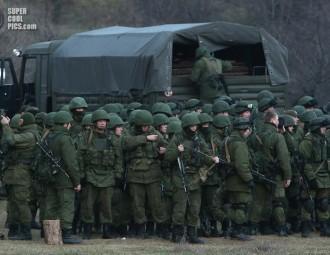Alexey Poltorakov: Moscow won’t recognize president election in Ukraine

And formation of tension zone along line Kharkov-Donetsk can serve as one of the reasons.
How is the current worsening of separatism in Ukraine connected with the forthcoming president election? Alexey Poltorakov, a political scientist and a scientific secretary of the Institute for Ukrainian politics, shared his opinion on the subject with the EuroBelarus Information Service.
- Can we consider the president election in Ukraine that is scheduled for May 25, to be the benchmark in Russia-Ukraine confrontation? What is more beneficial for Russia: to rock the boat before the election or to announce that the newly elected Ukrainian president is illegitimate and by this create a new motive for “the protection of Russians and Russian-speaking population of Ukraine”?
- President election on May 25 can be a reference point in Russia-Ukraine events, the basis for measurement of Russia-Ukraine relations. As for the moment there are almost no doubts that the official Moscow won’t recognize the president election in Ukraine. However, Russia will still have to negotiate with the new Ukrainian authorities; and not only about gas…
Russia will continue rocking the boat in the eastern Ukraine along line Kharkov-Donetsk to influence the situation in the state on the whole. As instability in Ukraine is, at least, an extra argument for non-recognition of Ukraine’s president election, and can also serve as an instrument to influence the general situation in the country.
The problem of Ukraine’s federalization as seen today is to a large extent the readiness of Moscow for the serious dialog and certain concessions in the “Ukrainian question”. It demonstrates readiness to consider the variant of withdrawal, even if it verges on the interference in the domestic affairs of the sovereign state, which is resolving its administrative and state issues on its own, however problem they might be. And there are lots of questions to the Russian state regime as a federation, too.
I believe the overall tendency won’t change – by acquiring Crimea, Russia loses the whole Ukraine. It is paradoxical, but according to the latest polls the majority of population in Donetsk (65,7 per cent) prefers to live in a unified Ukraine, while less than one fifth of the population (18,6 per cent) chooses Russia.
In some sense, this geostrategic exchange is not very beneficial for Kremlin, as the political acquisitions, that of Crimea in particular, result in all more serious geo-economical losses.
Ukraine should learn to “start life afresh” day after day in Russia-Ukraine relations... And sooner or later Russia will have to learn that, too!
-
03.01
-
07.10
-
22.09
-
17.08
-
12.08
-
30.09










































